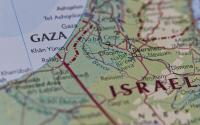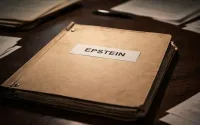24 May 2006The Independent
It is a significant moment: the most trusted voice in Britain speaks out, at last, on climate change. Unique is one of the most over-used words in the language, but it truly applies to Sir David Attenborough, and his reach and influence with the public.
In a 50-year career of bringing the wonders of the living world into people's homes through his documentaries, this superstar naturalist - there's no other way to describe him - has built up a popularity and influence as a public figure no one else in the country can command.
No politician, no singer, no comedian, no footballer, is as welcome on the small screens in the nation's living rooms. The hushed tones, the hoarse whisper that has described mountain gorillas, polar bears, blue whales and wandering albatrosses acting out the dramas of their lives, are easy to parody, but amongst Britons they seem to have inspired also a sort of serene confidence. In a recent poll Sir David was voted by a large margin the most trusted celebrity in the land.
Yet paradoxically this supreme interpreter of the natural world has - until now - resolutely ignored the greatest threat the natural world has ever faced, global warming. Consider: it is 18 years since the United Nations set up the Intergovernmental Panel on Climate Change, recognising officially that global warming was a catastrophic threat to the Earth and to human civilisation. Yet in all the time since then, although the procession of Attenborough nature documentaries has been unending - The Trials of Life (1990), The Private Life of Plants (1994), The Life of Birds (1998), Life in the Undergrowth (2005), Planet Earth (2006) - they have remained empty of any recognition that we are rapidly destabilising the very life-support systems these wonderful films describe. Twenty minutes of polar bear footage on Planet Earth made no mention of the fact that polar bears are now in mortal danger of extinction because the Arctic ice they hunt and breed on is rapidly melting away as global temperatures rise. The silence was deafening.
Until now. Tonight on BBC1, Attenborough makes amends with Are We Changing Planet Earth?, the first of two major programmes (co-produced with the Open University), which recognise the reality and peril of the changing climate, and ascribe its cause squarely to human actions. (Can We Save Planet Earth? follows next week.)
These are different from what has gone before. The old whispering maestro is engaged; there is not just magnificent description, there is a cause.
Why not before? In The Independent today Sir David freely admits that he was sceptical, and that he long hesitated to call something a catastrophe when perhaps it wasn't.
But perhaps also the hesitancy was in the character of the man. Born in 1926, Sir David comes from a generation which grew up when what was studied by people who liked flowers and birds and animals was called Nature. He is a naturalist. In fact, he is The Naturalist, par excellence.
But now Nature is called something else - the Environment - and the people who care for it are not only called something different (environmentalists), but they have a quite different outlook. They are not scholars and observers, but active defenders, campaigners, champions: eco-warriors, in fact.
Although in private he has actively supported conservation groups like the World Wide Fund for Nature and Fauna and Flora International, Attenborough has never been an eco-warrior, and not a few environmentalists have criticised him for that.
They will surely rejoice now that he has at last thrown himself into the struggle to combat global warming, with a voice that will be heard far and wide, even in his 81st year. His was the last remaining voice that desperately needed to be heard.
There's only the George Bushes and their like now, telling us the moon is made of cheese.






